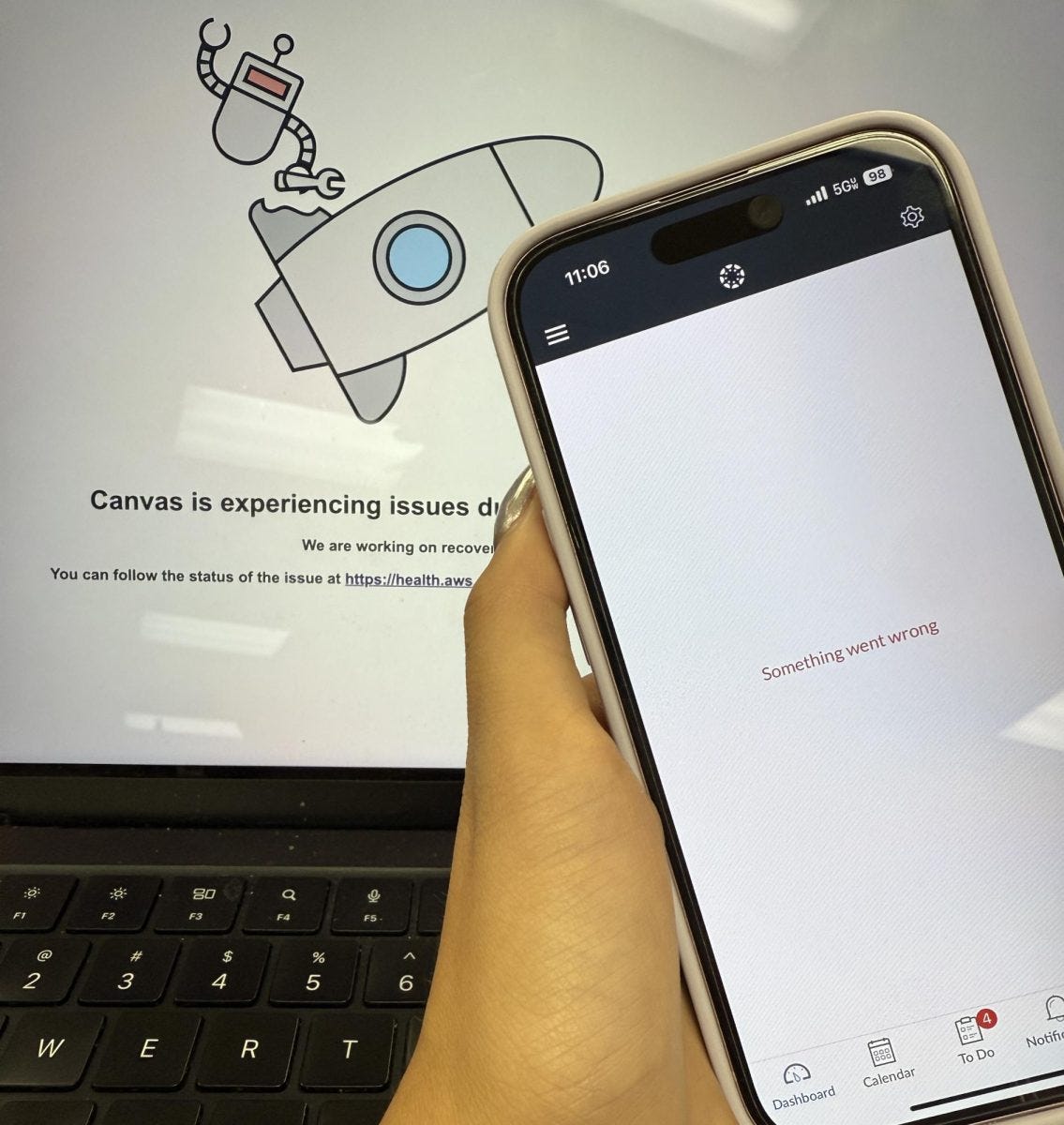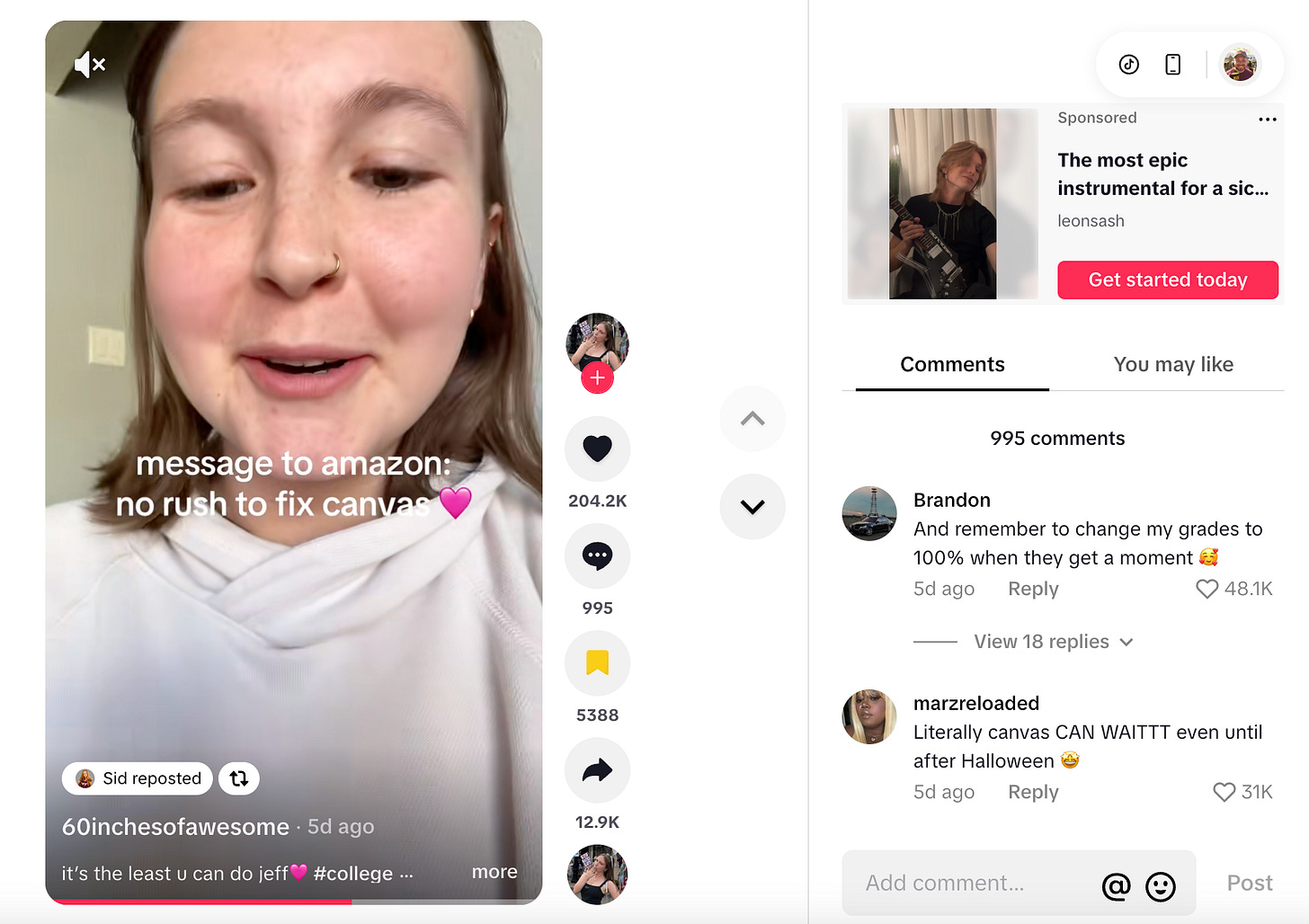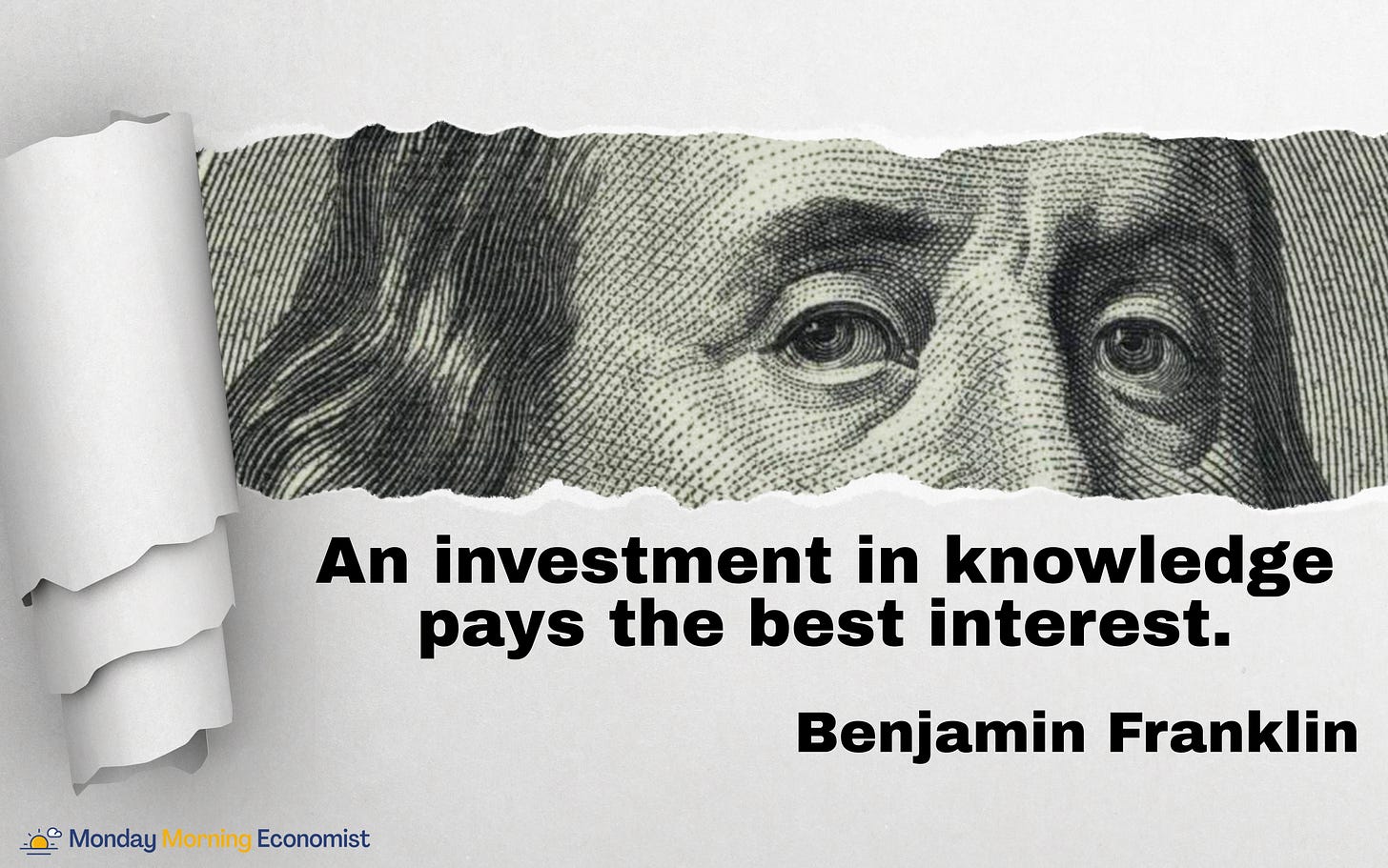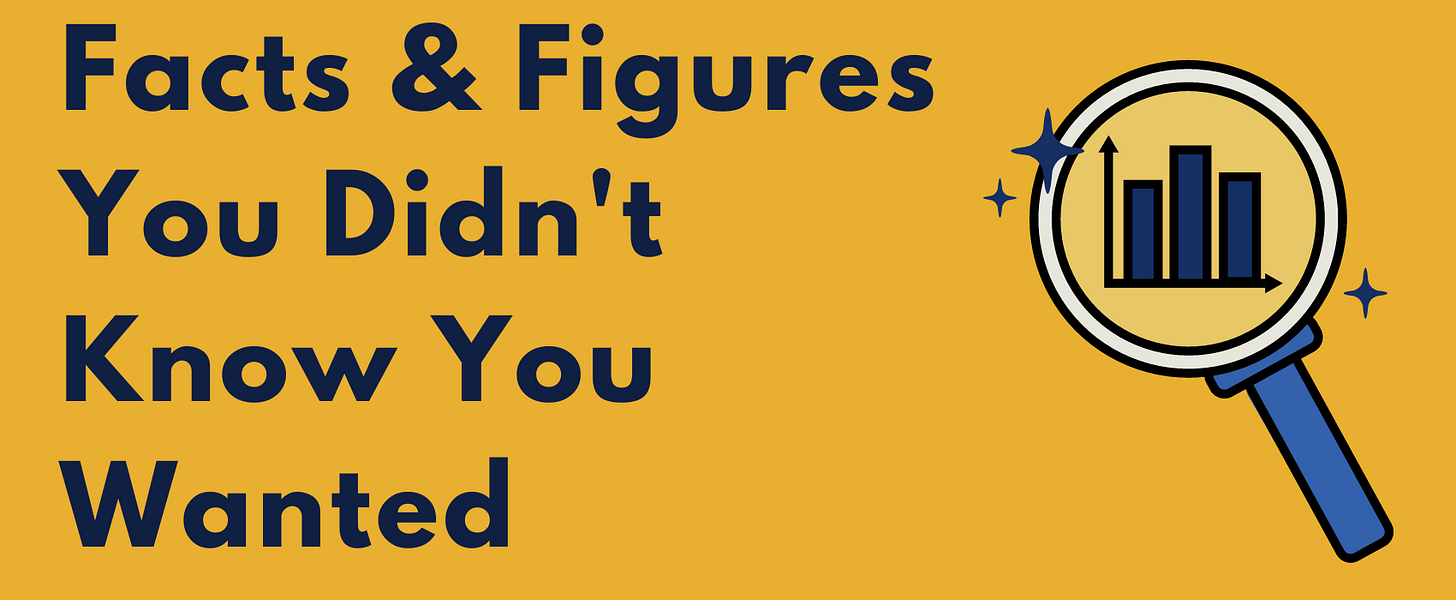When Canvas Crashed and Students Cheered
An AWS outage, a lost day of learning, and a perfect lesson in the economics of education.
You’re reading Monday Morning Economist, a free weekly newsletter that explores the economics behind pop culture and current events. Each issue reaches thousands of readers who want to understand the world a little differently. If you enjoy this post, you can support the newsletter by sharing it or by becoming a paid subscriber to help it grow:

On Monday afternoon, college students took to TikTok for an urgent message for Amazon: Take your time fixing Canvas.
For several hours, Amazon Web Services experienced a major outage. Unfortunately, it’s the backbone for a lot of the internet. That outage knocked out several major platforms, including Canvas, a popular educational platform that runs everything from assignments and quizzes to announcements and grades.
The outage threw students into two broad camps. Some panicked. They couldn’t submit projects, review notes for midterms, or check last-minute updates before an exam. Others were thrilled. The outage brought them an extra day to work, but many chose to take the day off instead.
For one day, higher education across the United States came to a standstill. Professors couldn’t post announcements, students couldn’t submit assignments, and inboxes filled with polite versions of the same message: “Canvas is down. What should we do?”
It was essentially a digital snow day. But what did it cost us?
The Economic Mystery
Imagine paying $15 to see a movie. You settle in, the lights dim, the opening credits roll, and then the sound cuts out in the middle of the movie. When it finally comes back on, you’ve missed several minutes of dialogue. You’d be frustrated. You might even ask for your money back.
College costs a whole lot more than a movie ticket. So it’s strange that when the main platform students use to access their classes suddenly goes dark, nobody demands a refund. Students (and their parents) complain a lot about how much they pay for tuition, fees, housing, and textbooks. But when the very system that delivers the product goes offline, they celebrate.
It’s a weird contradiction. If education is something you purchase to build your future, then a day without learning should feel like a bad deal.
What Students Think They’re Buying
Economists often describe college as an investment in human capital. Students pay up front to gain knowledge and skills that (hopefully) raise their future earnings.
And for some students, that’s exactly what it is. They were frustrated by the outage, worried about missed lectures, delayed exams, and the growing list of deadlines stacking up once Canvas came back online. From their perspective, a day without access meant a smaller return on a very expensive investment.
But that’s not how a lot of students saw it.
Their response revealed how college is more than just a place to build skills. It’s also a system of signals and expectations. When that system went down, those students saw it as permission to stop rather than a decrease in productivity.
The Signal Was Still Up
Economists look at this side of education through the lens of signaling. Michael Spence first proposed that a college degree isn’t just valuable for the skills it provides, but for what it signals to employers: intelligence, discipline, and perseverance.
If college were a cheap and effortless signal, everyone would do it, and the signal would lose its value. The long nights, the deadlines, and yes, the tuition, are costs are what make the degree a credible sign of effort and ability.
From that perspective, last week’s outage wasn’t a threat to the signal at all. Students will still graduate, their transcripts will still list the same courses, and their future employers will never remember that Canvas went down for a day.
Students know that, too. It’s why they knew it was safe to celebrate. The servers may have gone down, but the signal was still up.
Final Thoughts
Part of what students pay for is human capital, the knowledge and skills that (hopefully) make them more productive. Another part is signaling, the costly proof that they can finish hard things and follow through. But there’s also consumption value: the joy and satisfaction that comes from the college experience itself.
I’m not talking about the kind of consumption that happens on Greek Row most nights, but the real consumption: late-night talks with friends, volunteering, club meetings, the sense of belonging to something bigger. That part of college can’t be measured in test scores or GPAs, but it’s still part of what students are buying.
When Canvas went down, those different motivations came into focus. The human capital investors were frustrated. The signalers knew their degree was still safe. And the consumers? They took the day off and enjoyed it.
Somewhere in the background, Amazon’s engineers scrambled to bring the world back online. It was a quiet reminder of how fragile the whole system really is. But by then, most students had already logged off and gone about their day.
Because for them, college didn’t stop when the servers did. It just revealed what they were really paying for.
Got a college student who loved the Canvas outage a little too much? Forward them this newsletter. Actually, go ahead and sign them up yourself. Think of it as the easiest investment in human capital you’ll make all semester.
50% of college and university students in North America use Canvas, including every Ivy League school [Instructure]
Downdetector received 11.3 million user reports of affected websites as of 12:45 PM on the day of the outage [Forbes]
Only one-in-four U.S. adults say it’s extremely or very important to have a four-year college degree to get a well-paying job in today’s economy [Pew Research Center]
The average bachelor’s degree holder contributes $278,000 more to local economies than the average high school graduate through direct spending over the course of his or her lifetime [Brookings Institution]
Researchers have estimated that the average annual consumption value of college is as high as $11,600 for some students [NBER]






Thanks for linking the Pew survey results on the worth of a college degree. Why do you think the share of Americans who think a college degree is not important to get a well-paying job is growing as the wage gap between those with/without a college degree continues to grow?
You’re underestimating the signaling percentage, those students frustrated by the outage are still almost entirely worried about their ranking, not the lost human capital